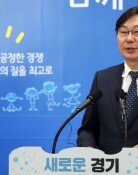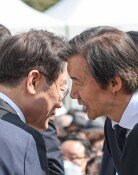SNU Department of Social Science Holds a Symposium
SNU Department of Social Science Holds a Symposium
Posted March. 18, 2005 22:38,
Korean society is increasingly divided as the government and other entities are failing to function properly. Korean people are suffering from an identity crisis as a minimum level of mutual trust, which is essential in maintaining solidarity within the community, is being seriously dampened by the day.
Cho Soon, an honorary professor at Seoul National University and former Deputy Prime Minister and Finance-Economy Minister, pointed out on March 18 in his speech titled Challenges and Future Directions for Korean Society in a conference held in commemoration of the 30th anniversary of the foundation of the College of Social Science at SNU.
In a forum held under the theme of Where Korean Society is Heading, SNU President Jung Un-chan gave a congratulatory address, and Kim Sang-kyun, Professor of Social Welfare, led the debate with the participation of Representative Lee Hye-hoon of the Grand National Party, and Kim Dong-chun, Professor of Sociology at Sungkonghoe University.
The discussion covered a variety of issues, ranging from challenges currently faced by Korean society and practical solutions to those challenges to the role of colleges.
In particular, there was a fierce debate over the cause of prolonged economic recession, mutual distrust and polarization and the role of intellectuals under such circumstances.
Far-fetched and impatient implementation of various democratization and reform policies have seriously dampened economic vitality and brought about polarization in our society, indicated Professor Cho. Now it is high time that Korean society should recognize its flimsy human resources, material and psychological fundamentals and set a new practical direction for strengthened foundations.
Since the launch of the Participatory Government, extreme ideological conflicts have lead to divisions and disruptions in every corner of our society, said Song Ho-keun, a professor of sociology, in his speech. Reform politics, led by the Participatory Government, has disintegrated the loose alliance of liberalism between industrialization and democratization forces, accelerating an extreme polarization between conservatives and progressives.
Korean society as a whole needs a kind of buffer zone, asserted Professor Song. We should get over the excess of ideology, which has been apparent in our society for the last two years, and come up with a more democratic, practical approach.
Jae-Young Kim jaykim@donga.com







